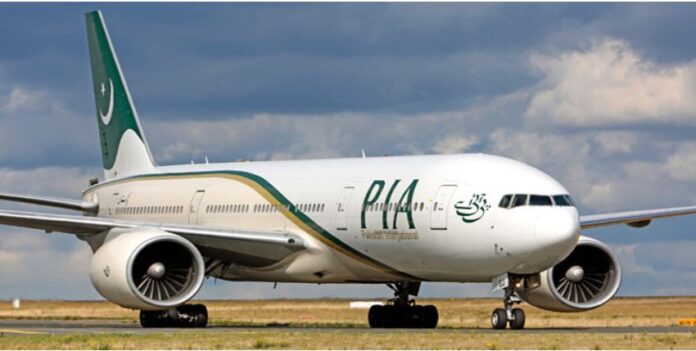Pakistan International Airlines (PIA) has submitted a written payment plan to the Federal Board of Revenue (FBR) in order to have their frozen accounts unfrozen. The PIA spokesperson stated that the issues between FBR and the airline have been resolved.
After completing the required paperwork, PIA’s accounts will be restored. The airline owes Rs 2 billion in federal excise duty, which is the reason for the freezing of their bank accounts.
PIA is currently facing a severe financial crisis, which has raised concerns about its ability to sustain air operations due to mounting debts. Among the critical outstanding payments is an amount of more than Rs 24 billion owed to Pakistan State Oil (PSO).
The FBR had frozen PIA’s accounts over non-payment of over Rs 2 billion in taxes, and this action was taken after 53 bank accounts of the national carrier were frozen by the revenue board over the same issue last year. The airline’s financial situation has become a matter of immediate concern as it struggles to meet its payment obligations.
Certainly! Here’s some more information about Pakistan International Airlines (PIA) and its financial challenges:
In addition to the outstanding payment of Rs 2 billion in federal excise duty, PIA is facing several other financial difficulties. The airline has been grappling with mounting debts and operational losses for quite some time.
One of the major issues contributing to PIA’s financial crisis is mismanagement and inefficiency. The airline has been criticized for its bloated workforce, overstaffing, and lack of cost-effective measures, leading to a continuous drain on its resources.
Moreover, PIA has struggled to compete with other airlines, both domestic and international, which offer more attractive fares and better services. This has resulted in a decline in the airline’s market share and revenue generation.
The COVID-19 pandemic further exacerbated PIA’s financial woes, as the global travel restrictions and lockdowns significantly reduced air travel demand. Like many other airlines worldwide, PIA had to suspend a significant portion of its flight operations, resulting in additional losses.
The hefty sum of more than Rs 24 billion owed to Pakistan State Oil (PSO) poses a serious challenge to PIA’s financial stability. The non-payment of this amount has strained the relationship between the airline and PSO, impacting its ability to procure fuel and meet other operational expenses.
To address the financial crisis, the Pakistan government has been exploring various options, including the privatization of PIA. However, privatization plans have faced strong resistance from employee unions and other stakeholders.
Despite the challenges, PIA remains an essential asset for Pakistan, connecting various domestic and international destinations and playing a vital role in the country’s air transport sector. However, comprehensive reforms and a sustainable financial strategy are urgently needed to put the airline back on a path of stability and profitability.
